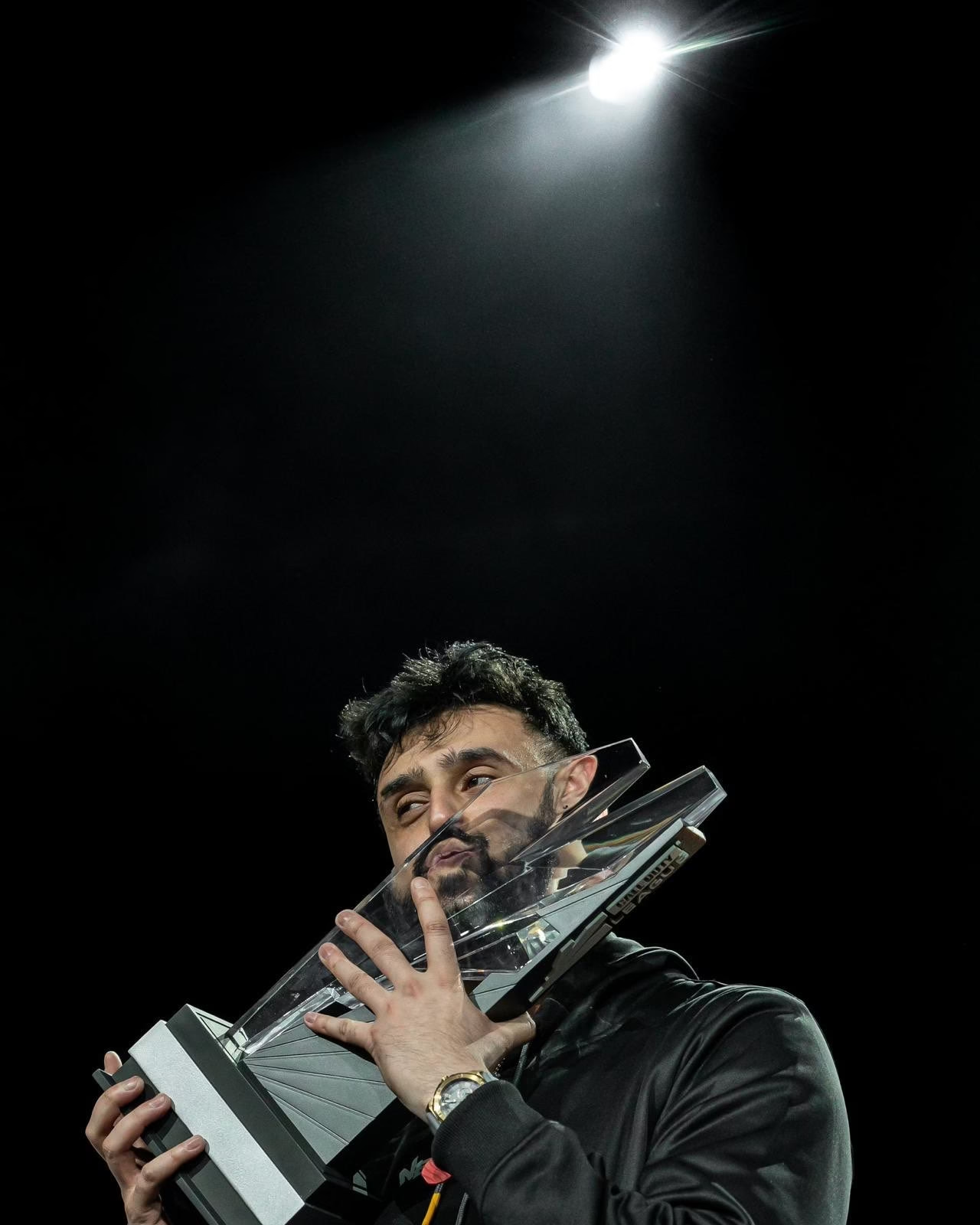The Mind of the Leader By Rasmus Hougaard (My Interpretations and Learnings)
I read a lot of books. Throughout my journey, it has cursed me – I want to apply every learning practically.
Over time, I’ve realized that not everything can or should be applied, but some key takeaways have truly resonated with me. To save you time, you might be interested in the biggest learning I’ve taken away from the hours I’ve put in. (I won’t cover everything – Only some key concepts that I related to)
WHAT’S MSC?
Mindfulness (M), Selflessness (S) and Compassion (C)
When I read all these new-age self-help and leadership books, they all preach the same thing. Be in the present (M), serve others (S), and understand what other people need (C)
Simply put, this is your character.
The same traits of a good teammate. Challengers players ask what it takes to be a good teammate. Talking with both Crimsix and Attach on the BreakingPoint Podcast:
- Minimum expected level of respect for your teammates
- Go above and beyond for them
- Take everything seriously.
These are the hallmarks of belonging to a tribe.
When studying, you’ll find that most character traits that are the precursors to success are seen in all kinds of industries and fields. Sports, education, business – you name it. They all preach the same thing – although the context might be slightly different (MSC).
“Successful leaders in the future will be the ones who can facilitate true happiness for their people”
Mindfulness makes you more selfless, selflessness makes you more compassionate and compassion makes you more mindful and selflessness in turn.
Why do I care about being mindful as a competitor?
Mindfulness is both a practice and a state of mind. Mindfulness is about generating greater mental effectiveness, that way you can reach your full potential. Think of it as mental clarity. Clear thinking. As a player and as a teammate. Do you see the breathing techniques some of the pros do before they play? You see Bance and Insight sit for minutes before a game breathing? That’s mindfulness.
In our ADHD generation where attention spans are so few and far between, mindfulness helps you manage your attention. In turn, your attention in the game (situational awareness, reading the game, team play) and out of the game (Actually listening to your teammates’ feedback).
Manage your focus to be more present and in the now!
That way you can make use of every scrim session and not zone out. When you’re present, you’re learning.
This book taught me two key components of mindfulness – awareness and focus!
FOCUS v AWARENESS
Focus is your ability to concentrate on a task at hand for an extended period, with ease. Like when you’re playing a 10-minute scrim, you’re focused. There are biological limits to your focus, you’re not going to be wired for 4 hours straight.
Have you ever experienced when you’re scrimming and after you die, you randomly think about what you want for dinner? That’s focus.
Awareness is the ability to make a wise choice about where to focus your attention. You’re optimally effective when you’re both focused and aware. Imagine you have CSGO on the left screen and COD on the right. You need to focus on one, so you choose to focus on COD.
Before you read further, ask yourself what you are right now?
CORE POINT:
- Lower left, neither focused nor aware.
- Lower right, you’re aware but easily distracted (most of us). Upper left, you’re focused but on autopilot (flow state). The upper right is being mindful, focused, and aware.
- The bottom left is a state of mind you never really want to be in as a competitor, or when you’re trying to improve. Most of the mistakes in life you make, and this is also from personal experience, come from being in this state. You’re just doing stuff on impulse or emotion.
- The bottom right, when you’re aware but easily distracted, is what I call the precursor to greatness. I’ve worked with remarkable people who have great bloody ideas but get distracted easily. I’ve had teammates who give bloody great solutions on how to play a situation – just not the right one.
Flow is what you want to be as a player. Like I said earlier, the context is different between what you’re doing – esports, business, education, and so on. For competitors, you want to be in flow state. You want to be on autopilot as most of your training should be taking over.
You win games from practice, it’s as simple as that. Practise how you play. That is the point Crim would always repeat. For me, who doesn’t need to play, this isn’t a state I want to be in. I need to be aware of what’s going on, always.
For coaches, leadership positions or positions of responsibility, this is the state that helped me the most on the day to day of esports and management. With the 1001 tasks from both in-game and out.
This can still apply to you players as you’re more in-tuned about yourself and your team both internally and externally – About what plays truly matter.
I’ve worked on challenger teams where we argue for too long on a micro play that doesn’t move the needle (squeeze the juice as I tell Daunte) – instead of the hill we consistently lose 50 seconds on. More internal and external mindfulness helps to become efficient.
Training Mindfulness
How I train mindfulness daily!
- Set a timer for ten minutes
- Sit on your chair, allow your entire body to relax.
- In a relaxed way, direct your focus to your breath. Be neutral, don’t control your breath. Count to 10 when you inhale and back to 0 when you exhale. You will get distracted. Sounds, feelings, thoughts, bodily sensations. When you notice this, go back to your breath.
Do this before you scrim, you’ll notice how much more focused you are when you play.
Selflessness
Selflessness is getting out of your own way, the way of your people and the way of your organisation.
Selflessness is how you get natural flow in the teams you work with. You can’t be stubborn, no matter how right you think you are – The wrong way when done together, is often the right way.
Unless you decide to flip spawns on me, first wave of a new hill because you think chasing the two piece red dot is great and now they spawn on the hill milking 5 seconds – ALT F4.
Selflessness is basically showing humility and service. If you want to do great things, you need to have unwavering conviction in yourself, but you also need to trust others.
If you display an ego to your team mate, you can chalk it up. Ego and high standards are two different things.
Each team contributes 25% – No team consistently wins when there isn’t a 25% spread. If you think you need to get the second kill in a setup, even when a teammate has over you to team shot, then you die and he gets spam naded / stunned – you’re at fault. You did 30% in that situation.
Selflessness is something that I re-struggled with after the first year of the CDL. The ego to try and do everything, which then detriments the project. Lower the ego, show humility and work with others for collective success. Not individual. Easier said than done, trust me. Showing humility doesn’t mean you can’t be assertive or confident in yourself!
Ask yourself, which one are you in the selflessness matrix? Be honest.
CORE POINT:
- Lower left quadrant, you don’t have self-confidence but you only care about yourself. You’re a narcissist.
- Lower right quadrant is that you have a strong sense of self-confidence but you only want to achieve personal goals. That’s fine, nothing wrong with that, in my opinion. Slightly bit egotistical though but, i understand in COD. Dog eat Dog world. A bit of a destructive trait though, power corrupts. The saying you get a bit of juice and you forget who you’re drinking water with – explains that!
- Upper left is you being a pushover, you’re not looking out for you or for anything. You will burn out, trust me. I had this early on my career with NYSL. Trying to please everyone.
- Upper right is the sweet spot. The spot i’m working to get. What ever happens, happens vibe. Confidence to speak up while also looking out for others. Enabling other people to succeed and do well. Forget the praise, forget the acknowledgement and cultivate inclusion for others to succeed. Truthfully, i struggle with this one. Ego and pride takes over but, we work towards that!
Training selflessness
- Timer for 5 minutes.
- Relax your body and mind as before.
- Think about who made today possible for you. Family, friends, people you work with. Those who shown appreciate for you. Then consider how deeply interconnected you are with people. Allow some humility. You are a piece of a larger connected play of events. Life goes on if you’re on it or not.
- Take a moment to be grateful for those who contribute to your ability to live life.
COMPASSION
Compassion is about having positive intentions for others. You’re on a team and you want the best for the team? It should be you guys against the world.
Compassion isn’t the lovey-dovey soft stuff, it’s the ability to also understand other people’s perspective. It’s different from empathy.
You’re actually empowered to do something about it. Imagine being on a pro team, on a loss streak. You’re forced to sit down, feel the stress and pressures together. And get OUT together. (Shoutout NYSL Major 2 to Major 4)
This is where my focus on growth is. Consistent compassion, not selective one. The education system basically teaches you to fight for yourself and now you have to fight for others. It takes time to learn the opposite.
For you coaches and managers, compassion is the foundation for compassionate culture development. Stronger connections, stronger collaborations, more trust and so on.
CORE POINT:
- The lower left quadrant represents both a lack of compassion and wisdom. With compassion you’re just indifferent. And without wisdom you’re ignorant.
- The upper left quadrant is having compassion but lacking wisdom. You risk damaging what you support. You don’t want to be naive to the true problem. Hugging a problem isn’t going to make it go away.
- Lower right quadrant is a mind where you are skillful but you don’t really care for others. The 2008 financial crisis was a result of too many leaders – results in manipulation and selfishness.
- Upper right quadrant is a successful combination that produced benevolent leadership. Personally, this is one I aim to be.
Teaching compassion
- Set a timer for 4 minutes.
- Relaxed and comfortable.
- Recall a person who is dear to you and that might be experiencing challenges. Be aware of their challenges and how it must feel.
- Each exhale, imagine your breath and everything this person needs.
If you want to begin your journey, I’d recommend the book here!
Let me know if you’d like to see more about topics in and around the journey and learning of leading a high-performance esports team. If you are interested, sign up here!
For a limited time, all that sign up will receive the Ultimate CallOfDuty Guide – I’ve worked hard building a digestible introduction into advanced concepts – It’s completely free, all you need to do is sign up here and check your inbox!
Follow me on Twitter @DREAL_JE and keep up to date with me in esports.
Follow me on Instagram for real-life content! @DREAL_JE


